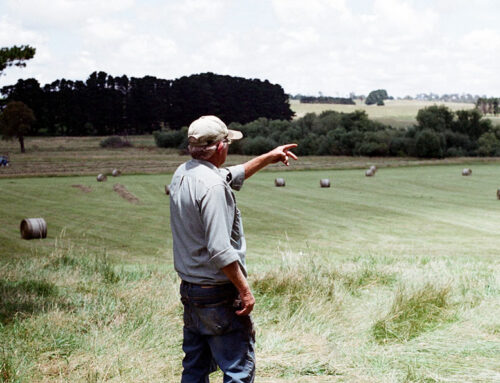Let’s be honest. We frequently disagree with the House and Senate Agriculture Committees.
However, when it comes to a press release from this Monday, July 11, we couldn’t agree more. An email from House Agriculture Committee Chairman David Scott (D-GA) landed in our inboxes, reading:
“I strongly encourage all who are interested to share their input on how the 2018 Farm Bill is or is not meeting their needs, so that we… can craft a strong farm bill and best meet the needs of people.”
Ranking Member Glenn “GT” Thompson (R-PA) added:
“It is critical we receive feedback from farmers, ranchers, producers, and families nationwide as the 2023 Farm Bill draws nearer.”
We second that.
Taxpayer voices are key as well. When it comes to farm subsidies, taxpayers and many farmers agree programs are in dire need of reform. Yes, some things are working, but if unnecessary, wasteful subsidies aren’t reined in, the farm bill will continue to promote certain producers’ dependence on taxpayer support, instead of resilience. We’re talking about farm, disaster, and crop insurance subsidies that promote unnecessary risk taking at taxpayer expense. Things like planting crops on drought- and flood-prone land, year after year, knowing taxpayers will bail farms out if disasters strike.
This doesn’t include other elephants in the room – tens of billions in recent COVID-19 income subsidies, trade war payments, you name it. Some are duplicative, unnecessary subsidies lining the pockets of farmers who’ve said they didn’t need them. These subsidies were approved entirely outside the farm bill process. And with hefty price tags, contributing to a record $47 billion in government payments in 2020, neither farmers nor taxpayers can ignore these ad hoc programs, or their fiscal and environmental impacts.
That’s not the message Agriculture Committee members are hearing in listening sessions around the country though. Recent hearings in states like Michigan, Arkansas, California, and Arizona actually featured some farmers asking for more, not less, taxpayer support in the next farm bill.
Recent debates have also glossed over some key points that matter to both farmers and taxpayers:
- The 2018 farm bill is on track to be well over-budget, with an estimated $1.3 trillion price tag – $450 billion more than was previously estimated.
- Farm subsidies result in a host of unintended consequences, including farm consolidation, higher land prices, barriers to entry for beginning farmers, worse water quality, and more.
- Some ag producers receive more than $1 million in crop insurance premium subsidies These subsidies are not currently transparent or means tested, meaning millionaires and billionaires qualify for unlimited subsidies.
One glimmer of hope in recent farm bill listening sessions, however, was panelists discussing opportunities for the federal crop insurance program to incentivize the uptake of smart, risk-reducing conservation measures. These can sequester carbon, improve long-term soil health and water quality, and improve resilience in the face of future disasters, a win-win-win for taxpayers. Other recommendations we’d add to the list (when we submit our own comments to the Ag Committee) include prioritizing additional conservation investments toward the most cost effective programs. And last but not least, reining in wasteful farm and crop insurance subsidies can pay dividends.
You can submit your own comments to the House Agriculture Committee here.
In our recent conversations with Nebraska farmers, here’s just a flavor of what they’ve said about the farm bill. These views, while not heard at many Agriculture Committee hearings, are a vital part of the next farm bill debate:
- Agriculture is unsustainable if subsidies are needed to keep the industry alive.
- If the government can’t enforce farm payment limitations, then get rid of farm programs altogether.
- Margin insurance is there to ensure farmers never screw up. [As background, margin insurance is a taxpayer-subsidized program in crop insurance that provides high levels of profit margin guarantees each year.]
We commend the House Agriculture Committee for seeking input from farmers like these as the 2023 farm bill debate heats up. Then, it will be up to members to write a bill reflecting views of real farmers on the ground.
Reining in wasteful farm subsidy payments should be the first to-do. Enacting reforms, such as those championed by Senator Grassley (R-IA) and supported by bipartisan majorities of Congress in the past, are necessary to achieve progress on everything from better opportunities for beginning farmers to conservation/climate benefits. The cherry on top is fiscal sanity.
Put another way, enacting a more cost-effective, transparent, and accountable farm safety net is doable but will require hard work. We thank the Agriculture Committees for beginning that work now.











Get Social